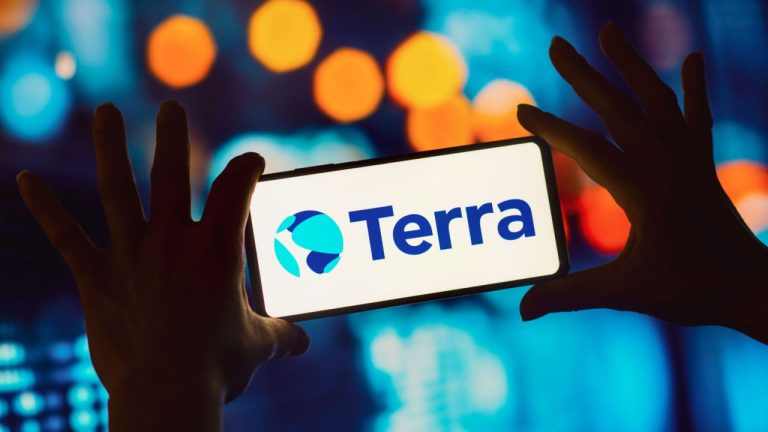
Solana co-founder Anatoly Yakovenko recounts the “eureka moment” that birthed the blueprint for the layer 1 smart contract protocol aiming to be “hyper-optimized” and “fast as possible.”
“I literally had two coffees and a beer, and I had this eureka moment at four in the morning,” Solana co-founder Anatoly Yakovenko recalls as he leans back thoughtfully.
Speaking to Cointelegraph at Solana’s annual Breakpoint conference in Amsterdam, the co-founder recounts a late-night brainwave of a “hyper-optimized, fast as possible” smart contract blockchain protocol.
“The use case that I was going after was for central limit order books, like how to run something that’s like the Nasdaq, but on a public permissionless blockchain,” Yakovenko explains.
“I thought that there was a clear win there if you have transparent data, everyone has fair and open rights, and all this stuff is running on commodity hardware.”
From surfing to smart contracts
Solana’s roots are intrinsically linked to Yakovenko’s journey as a computer engineer. Having spent the majority of his career at Qualcomm in San Diego alongside co-founder Raj Gokal, Yakovenko’s idea for the platform carries plenty of inspiration from that period of his life.
“Solana comes from Solana Beach. Me and my co-founders lived there, we’d wake up, we’d surf, bike to work, go back home and surf again,” Yakovenko reflects.
“We learned how to do awesome systems programming out there and 2017 is when I kind of had the inception idea for Solana.”
Yakovenko had been tinkering on a side project, building deep learning hardware, deploying graphics processing units and mining cryptocurrencies to test out the project. This paved the way for the genesis of the platform.
The impetus for the idea stemmed from a concept known as time division multiple access. As Yakovenko explains, the technology is tied to how cellular towers alternate transmissions based on time intervals.

His idea was to build a system based on technology that Stanford University researchers had been working on called a verifiable delay function. Yakovenko jokes that he thought he discovered something truly novel, which prompted him to begin working on a smart contract layer platform:
“The intuition that I had was that once you have a way to track time in a decentralized way on a public permissionless blockchain, you could use similar optimizations that Qualcomm did for cellular networks.”
Inspired by the advent of smart contract functionality pioneered by Ethereum, Yakovenko and his partners set out to develop a breakout application and use cases powered by smart contract functionality:
“We wanted to build a hyper-optimized, smart contract platform that could give the benefits of trust-minimized computing but without the performance headaches or costs associated with alternatives.”
Two years of work went into the engineering of Solana before its eventual launch in March 2020 just as the COVID-19 pandemic swept the world. The platform enjoyed significant success, fanfare and support, but Yakovenko admits that a fair amount of luck was involved.
“I wish I could say it was all genius, but we didn't raise enough money to build all the features possible. A lot of our competitors raised ten times more than us, literally hundreds of millions of dollars," Yakovenko says.
Solana as a green field for smart contract developers
With just enough runway to build a focused blockchain, Solana honed in on creating “the fastest thing possible.” It didn’t include Ethereum Virtual Machine support or remote procedure call services and “barely had a functioning explorer,” but Yakovenko maintains that this was part of what drew in builders.
“That’s what kind of lit up the developers imagination when we launched, it was so different from Ethereum and so uniquely built for a very specific optimization, making this thing as fast as humanly possible,” he explains.
The co-founder adds that the engineering did not sacrifice decentralization because Solana can operate with a large number of nodes. Carving out a niche attracted a core group of developers which birthed successful projects like decentralized wireless network Helium and smart contract protocol Anchor.
“They recognized something special and they saw that we didn't have any resources to build anything else. They took it upon themselves to go build open source code.”
The Solana ecosystem saw significant capital inflows during the cryptocurrency bull market of 2021, with its native token Sonala (SOL) reaching an all-time high just shy of $250 in November of that year.
“Gut-wrenching” network outages
The platform has also endured its fair share of hiccups. The collapse of Sam Bankman-Fried cryptocurrency exchange FTX badly hurt the ecosystem. As Cointelegraph previously reported, Yakovenko admitted that he had been left deeply concerned for a number of projects that had received investments from FTX and Alameda Research and those that had held capital on the bankrupt exchange.
Solana has also copped heavy criticism for a handful of outages that took the blockchain offline. Yakovenko described these instances as “gut-wrenching for an engineer” and painful lessons to learn:
“The number one priority is safety. Then it's liveness. When you have a problem like congestion, even if you can like bang out the code in a week, it takes audits and testing to ship it to mainnet.”
Learning from these mishaps has been a crucial part in the ecosystem’s continued operation. It also led to the Solana Foundation assembling a team to build a second validator client.
“The only other major smart contract network with more than one client is Ethereum. That's one of those steps that you have to do to get to full decentralization, in my opinion,” Yakovenko says.
As for the perceived competition between Ethereum and Solana? Yakovenko says there is healthy thought-sharing between open-source developers from both ecosystems. The main points of contention remain — a small pool of developer talent and perceived overlapping features.
Magazine: Slumdog billionaire: Incredible rags-to-riches tale of Polygon’s Sandeep Nailwal










